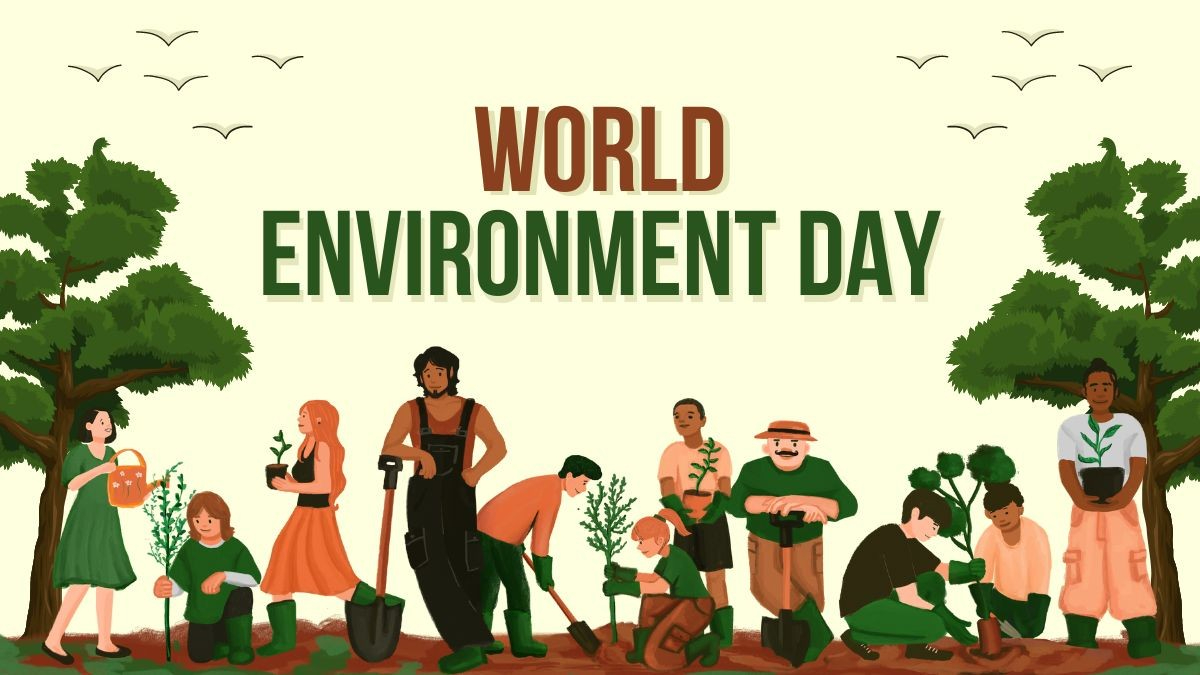World Environment Day: Rising Beyond Policy Statements

World Environment Day is a rallying point for humanity to tackle pressing environmental issues such as pollution, deforestation, and climate change. This annual global event transcends borders and socioeconomic status, advocating for sustainable living practices worldwide. It underscores the critical need to safeguard our natural resources and nurture a symbiotic relationship between mankind and the environment.
As we commemorate World Environment Day on June 5th, 2024, it is crucial to go beyond mere policy statements and delve deeper into the pressing issues of land restoration, desertification, and drought resilience. This article aims to shed light on the importance of these topics and how individuals, communities, and governments can make a difference in tackling these environmental challenges.
Evolution of World Environment Day
Since its inception in 1974, World Environment Day has become a pivotal platform for driving environmental awareness and instigating meaningful change. In the context of Nigeria, rapid urbanisation, deforestation, and pollution pose significant challenges, compounded by the impacts of climate change. By commemorating World Environment Day, Nigeria harnesses vital momentum to address these issues and empower its citizens to embrace sustainable lifestyles, thus contributing to the global environmental cause.
Nigerian Initiatives and Celebrations
Various activities mark World Environment Day in Nigeria to foster environmental stewardship. From tree planting initiatives to community clean-up drives, recycling campaigns, and educational seminars, Nigerians actively engage in efforts to enhance local and global environmental conditions. These initiatives highlight the interconnectedness of ecosystems and demonstrate Nigeria’s unwavering commitment to environmental preservation and solidarity with the international community. Mark your calendars – World Environment Day falls on June 5th annually.
Land Restoration: A Pathway to a Sustainable Future
Land degradation significantly threatens global food security, biodiversity, and climate stability. Here are some key points to consider:
Importance of Land Restoration
- Restoring degraded lands can help mitigate climate change by enhancing carbon sequestration.
- Promoting sustainable land practices can improve soil fertility and increase agricultural productivity.
- Revitalising ecosystems through land restoration efforts can safeguard biodiversity and wildlife habitats.
Strategies for Effective Land Restoration
- Implementing agroforestry practices to restore vegetation cover and prevent soil erosion.
- Supporting reforestation initiatives to enhance ecosystem resilience and provide economic benefits.
- Adopting sustainable land management practices to conserve water resources and promote land productivity.
“The Earth does not belong to us; we belong to the Earth.” – Chief Seattle
Desertification: Combatting the Spread of Arid Lands
Desertification severely threatens livelihoods, ecosystems, and water resources globally. Here’s how we can address this critical issue:
Understanding Desertification
- Desertification results from unsustainable land use practices, climate change, and human activities.
- Degraded lands lead to reduced agricultural productivity, loss of biodiversity, and increased vulnerability to drought.
Mitigation Strategies for Desertification
- Implementing sustainable land use planning to combat soil erosion and desert encroachment.
- Promoting water-efficient agricultural practices and drought-resistant crops in arid regions.
- Engaging local communities in ecosystem restoration projects to reverse desertification trends.
Drought Resilience: Building Communities’ Capacity to Survive
Droughts are becoming more frequent and severe due to climate change, posing significant challenges to water availability and food security. Here’s how we can enhance drought resilience:
Building Drought-Resilient Communities
- Investing in drought monitoring and early warning systems to improve preparedness and response.
- Promoting water conservation practises and integrated water resource management to mitigate drought impacts.
- Supporting sustainable agriculture techniques such as rainwater harvesting and crop diversification to enhance resilience.
Fascinating Facts About World Environment Day
Marine vs. Terrestrial Oxygen Production: Did you know that marine plants contribute approximately 70% of Earth’s oxygen, while terrestrial plants, including trees, account for the remaining 30%?
Climate Change Realities: The Earth’s average temperature has surged by approximately 1.1 degrees Celsius since pre-industrial times, primarily attributed to human activities.
Forest Loss: Shockingly, an estimated 18 million acres (7.3 million hectares) of forests vanish yearly, equivalent to about 27 soccer fields per minute.
Access to Clean Water: Only about 64% of Nigerians have access to clean, safe drinking water, highlighting the ongoing challenges in ensuring water security.
Environmental Impact of Oil Production: Nigeria, a leading oil-producing nation, grapples with severe pollution in the Niger Delta due to oil spills, adversely affecting ecosystems and community livelihoods.
On this World Environment Day, let us rise beyond mere declarations and take concrete actions to restore lands, combat desertification, and build drought resilience. By working together at local, national, and global levels, we can create a more sustainable future for future generations. Remember, the earth is not just our home; our responsibility is to protect and preserve it for future generations.
Let’s make every day Earth Day!



Leave a Reply